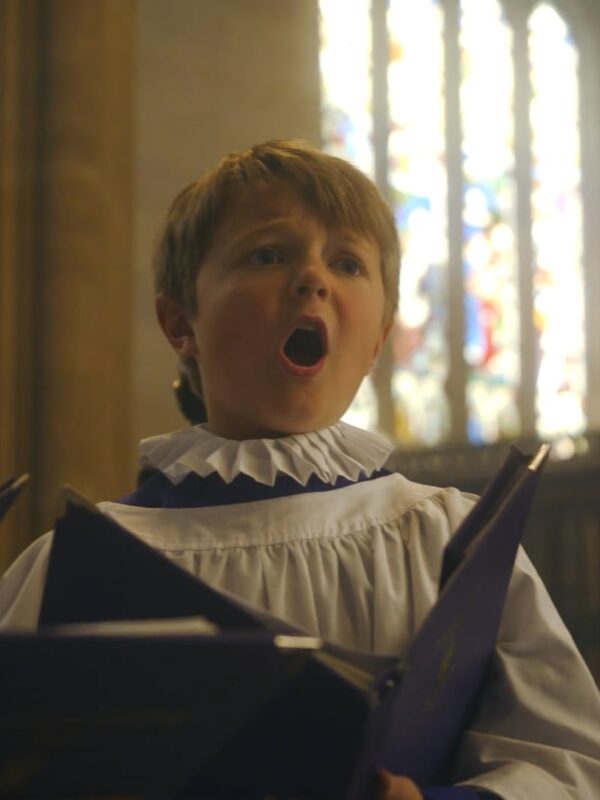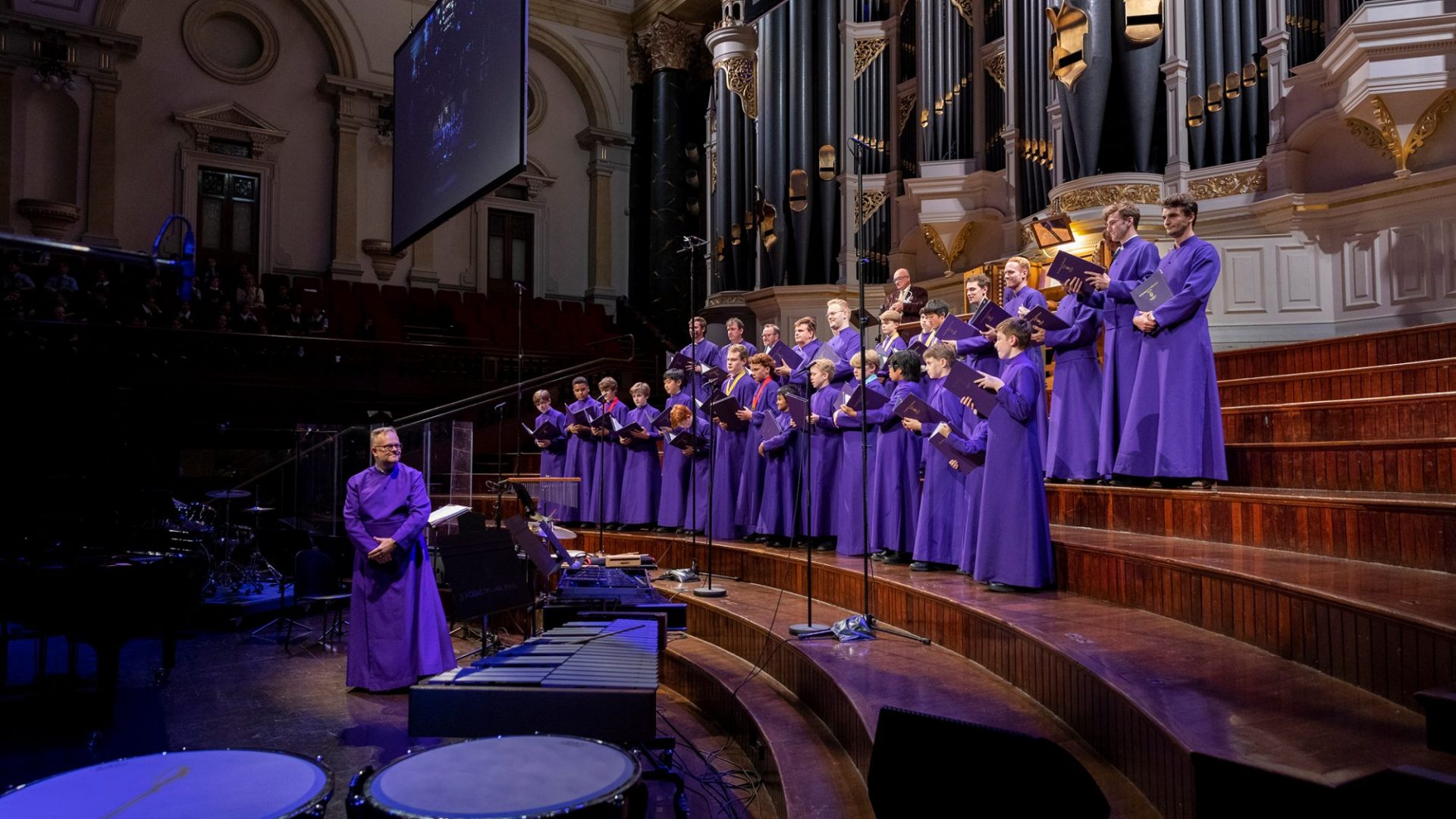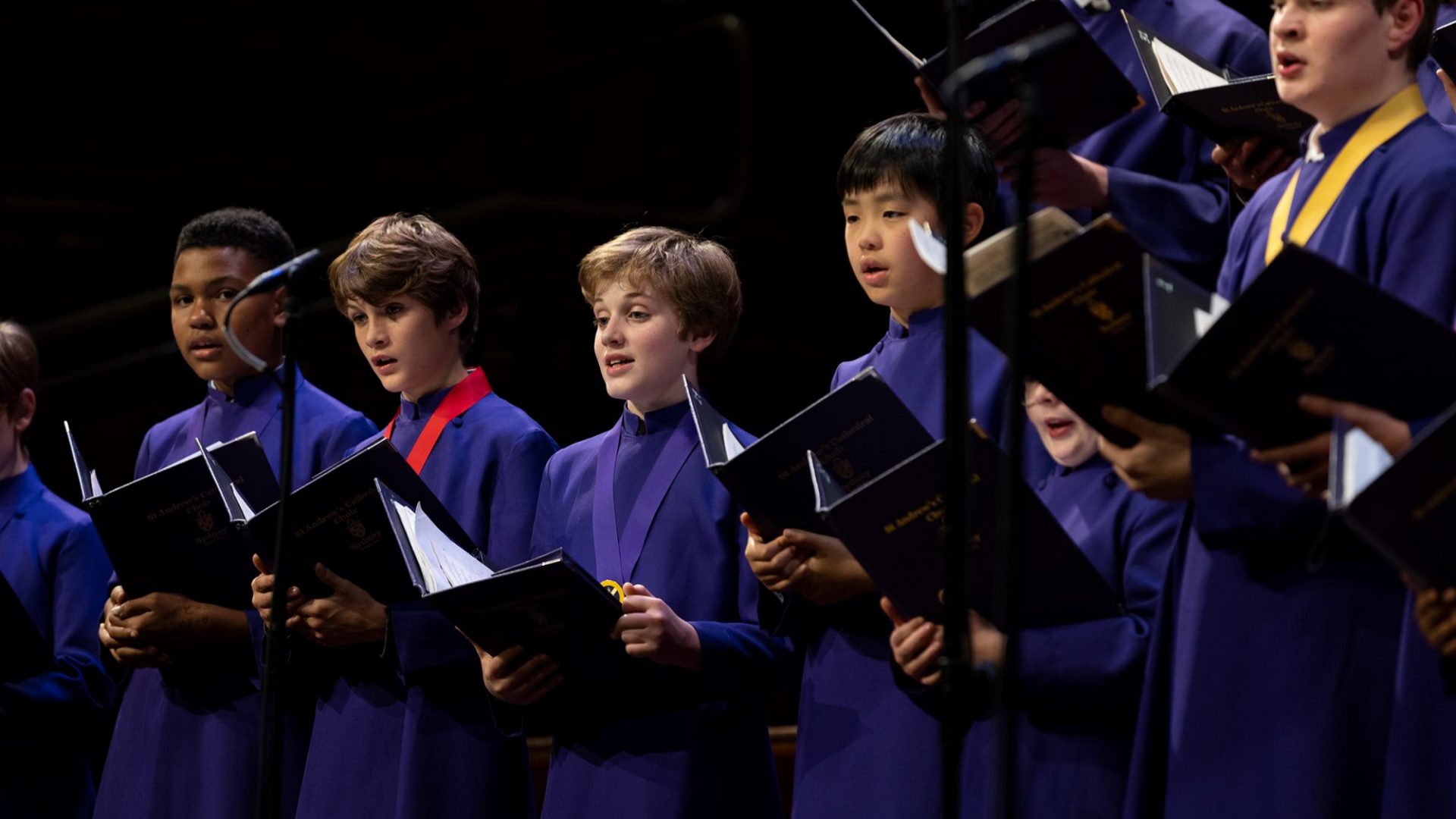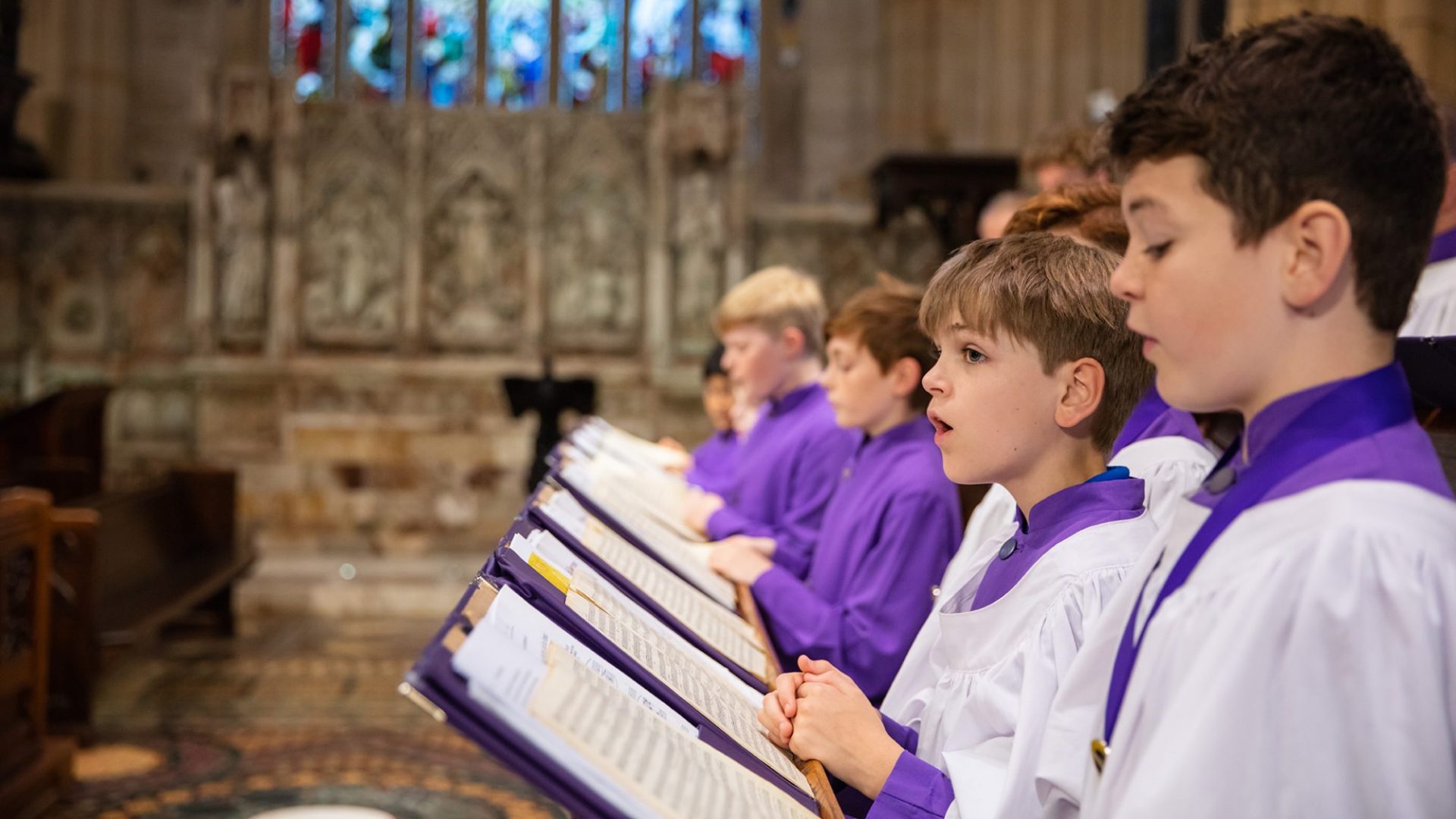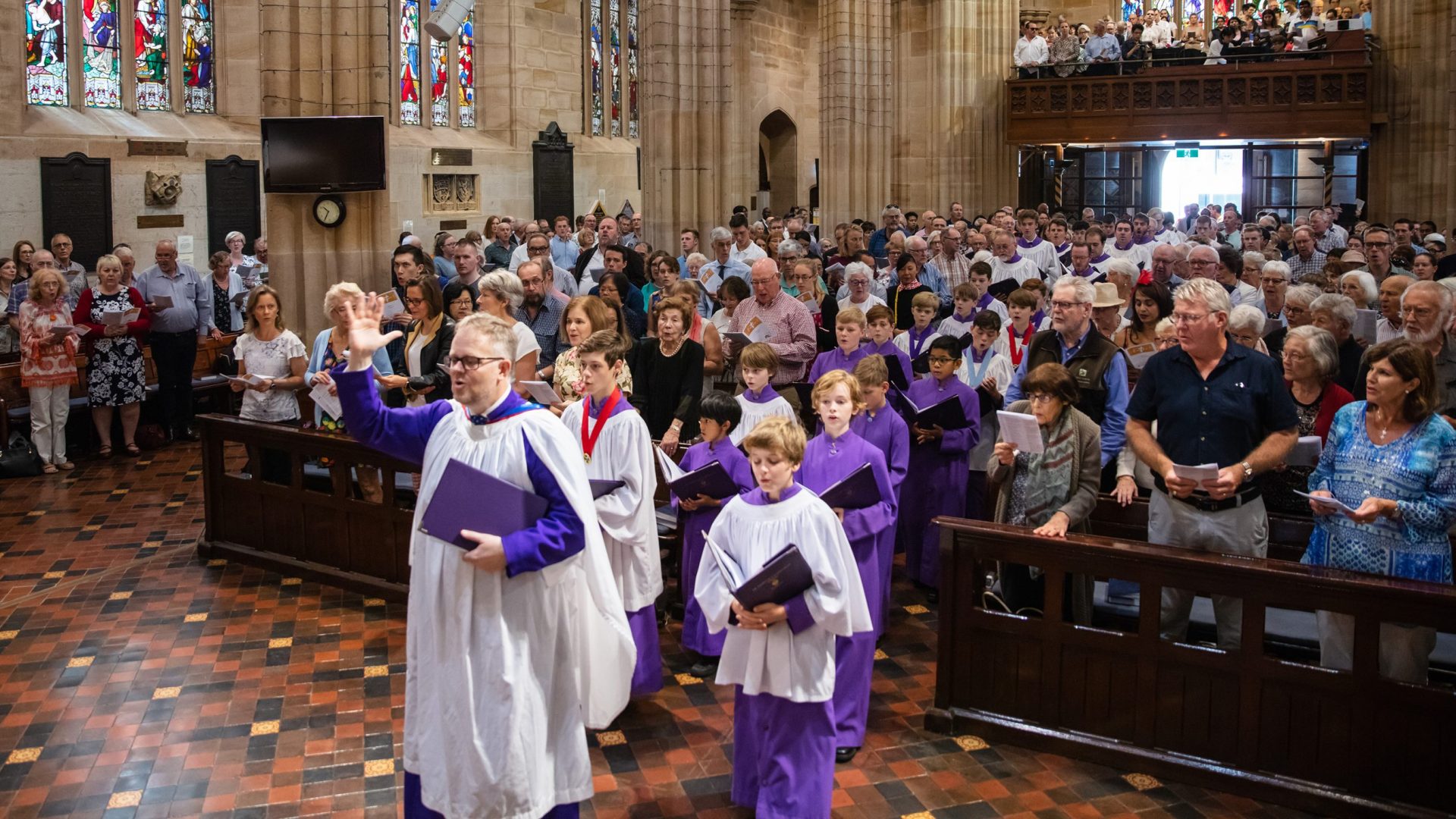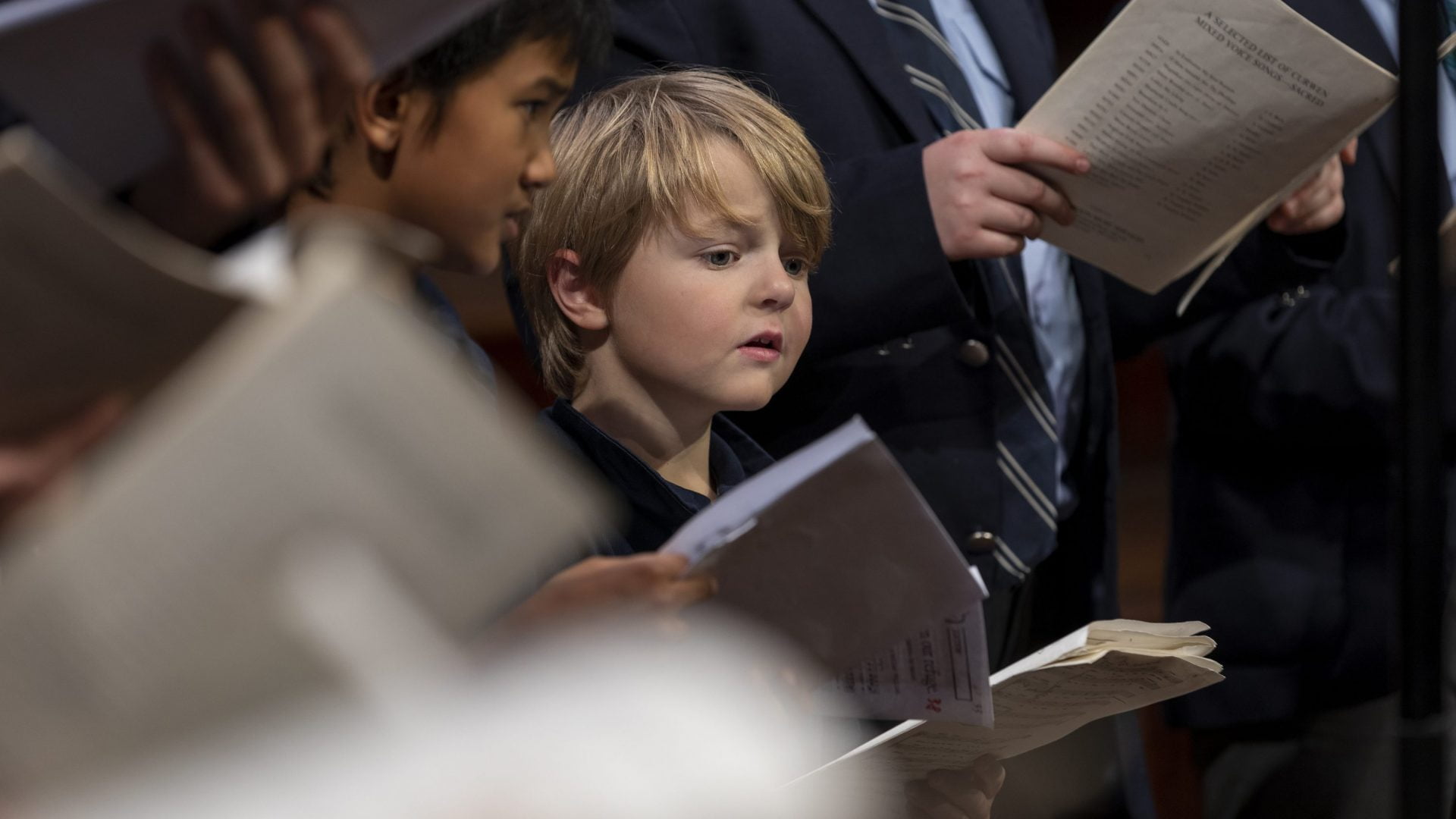An incredible tradition
Today’s choristers are a tight-knit group of students, whose involvement in the programme reaps huge personal benefit, both in musicianship training, self-worth, teamwork skills and interpersonal communication. Students become comfortable interacting with all age levels and upon completion, join a strong community of former choristers, scattered around the world.
Unparalleled opportunities
Not only do choristers perform weekly in the sonorous, stained-glass interior of Australia’s oldest cathedral, St Andrew’s – they receive a wealth of opportunities to take part in highly professional performances. Our choristers sing at official state and national events and in television and radio broadcasts, frequently for the ABC. Many work with the Australian Opera, alongside seasoned experts.
St Andrew’s Cathedral School Choir is the oldest musical institution in the Southern Hemisphere.
International chorister tours are typically run every two years. These trips have seen our students perform at services in some of Europe’s most historically significant buildings, from Venice’s Basilica of San Marco, to Notre Dame Cathedral, Westminster Abbey and Windsor Castle.
Fostering leadership skills
As with the greater school community at St Andrew’s Cathedral School, there are several formal leadership positions available to choristers. These include:
- Head Choristers
- Senior Choristers
- Headmaster’s Chorister
Many choristers also excel academically and in sport and are frequently found in the school’s leadership lists and honour boards.
All choristers receive training from the Royal School of Church Music’s international programme, Voices For Life. Taught by Mr Ross Cobb and externally moderated, the course teaches basic music reading skills, notation and timing, as well as how to use and protect the voice. It is not unusual for these young musicians to excel internationally in music post-school. An example is opera singer Stuart Skelton, who was named Male Singer of the Year at the 2014 International Opera Awards. The tenor has performed in major opera houses around the world and frequently returns to Australia to perform here. Many former choristers achieve success in a range of fields outside music and have credited their discipline and dedication to their early days in the choir.
Q&A
A Cathedral chorister must be a student at St Andrew’s Cathedral School. Choristers range in age levels, starting in Year 3 and moving up until Year 8 or 9. After Year 9 they may be able to return as choral scholars, continue in (less intensive) training and sing with the men of the choir. Approximately 18-22 students are involved as Cathedral choristers.
We welcome choristers from all faiths and belief systems, however, an understanding and respect for the Christian faith is expected. Choristers are required to perform regularly in Cathedral services and families are encouraged to come and watch their children perform whenever they can.
Yes. After a probationary period, successfully selected choristers are granted a scholarship in return for singing at Cathedral services. Choristers’ scholarships are currently worth 50 per cent of school fees and probationers’ scholarships are worth 25 per cent.
When a student has reached the end of their time as a chorister, they are very welcome to continue their involvement as part of the Cathedral Choir. Furthermore, there are a wealth of opportunities for musical development at SACS, with more than 40 instrumental and vocal ensembles.
Mr Ross Cobb
As Director of Music at St Andrew’s Cathedral, and Chair of the Royal School of Church Music in NSW, Ross Cobb is well equipped to lead the choristers at the School. A classically trained organist and conductor, he lives and breathes choral music. Mr Cobb was professionally trained at several London-based institutions – Guildhall School of Music and Drama, the Royal Academy of Music and Kings College London. Prior to working with St Andrew’s Cathedral School he was Director of Music at some of the UK’s largest churches.
When asked to pick what he loves most about his job, he has trouble deciding:
Everything! I love that sense of the team contributing to something bigger, the team ownership of Christian singing. And a lot of the time, it’s just really good fun.

